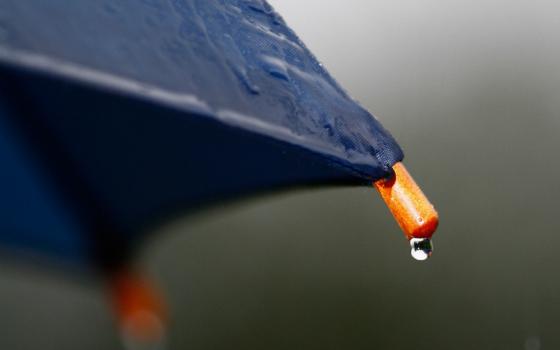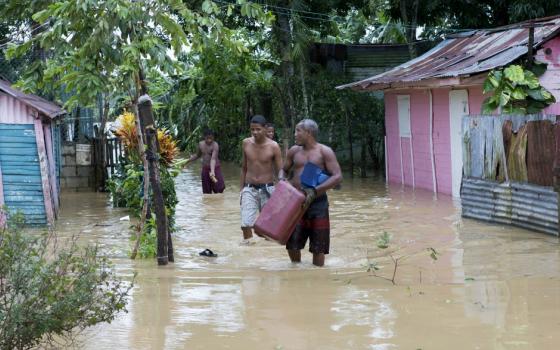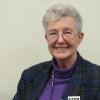I thought for sure they were not going to take me.
It was 1961, the summer before I was supposed to enter the Ursuline convent in Kentucky. I was using my last three months at home in New Mexico to find items on the dreaded "clothing list" — the list of weird things every well-dressed postulant would need.
Twelve white handkerchiefs for men. No problem; I pretended they were for my dad. I found the black Oxford shoes (ugh, "granny shoes"). I tried to pretend those were for someone else until the shoe salesman said, "Going to the convent, huh?"
The item that had all of us stumped was "black penny loafers." I thought I knew what loafers were, but not even the shoe salesmen knew what a black penny had to do with anything. My mother wisely said I could get those in Kentucky. Turns out they were just black loafers with a little slit on top into which you could slide a penny if you were so inclined. (Who would want to slide a penny into the slot?) Local culture is everything.
When I got to Kentucky, they didn't know what a taco was — it was many years before Taco Bell hit Kentucky — let alone a sopapilla, my favorite fried-bread treat. Local culture is everything.
And these were two cultures within the same country!
But the umbrella presented the biggest problem. I went to stores in Aztec, Farmington and Bloomfield. Nobody had umbrellas. After all, it was New Mexico. My last stop was the largest department store in Albuquerque, the largest city in the state. There, a kind saleslady said, "Well, honey, can't you just stay inside until it stops raining?"
My mother wisely observed that no doubt they would have umbrellas in Kentucky.
It was hard for a New Mexican to imagine a rain that lasted all day, let alone for two or three days. For years, it was hard for my friend in the wet northwestern United States to imagine a drought. It's hard for a person who has never tasted a taco to imagine how good they are.
This "local culture" thing is one reason people find it hard to grasp climate change. They live in the middle of their local weather, which tends to manifest itself in different ways even in the same country. In the United States alone, there are hurricanes in the South, tornados in the Midwest, wildfires in California, droughts in Arizona, and heat waves in Atlanta.
My cousin would always sneer in the middle of a Kentucky ice storm: "Well, tell me, what's that you were telling me about 'global warming'?"
(That's why we stopped calling it "global warming" and started calling it "climate change," Eddie.)
Climate change refers to changes in averages over a long time. Not very many people have the opportunity to study trapped carbon dioxide in air bubbles in glacier ice, to see the connection between carbon dioxide concentration and retreating glaciers. Not many people live long enough or are observant enough to document long-term changes in climate for themselves, though local observations about "spring coming earlier" over the last few decades have been documented by scientific studies.
All of us have weather anecdotes. Personally, I think we should start paying attention when older people say, "I've never seen anything like it in my lifetime."
But in spite of claims by newscasters, it's not the "worst hurricane in recorded history" — or even "the worst three hurricanes in a row" — that proves the theory of climate change, but climate change is predicted to produce stronger hurricanes over a period of time.
We have to start imagining a different reality. We have to stop thinking locally, noting only the local weather (the tacos or umbrellas), and start getting some global perspective. Don't just shrug and say, "Well, of course it's hot. It's Africa." Or, "We always have lots of tornadoes. It's Kansas."
It's hard for people in the United States to imagine that we have anything to do with a flood in India, to realize that all of our tiny little individual actions can add up to something so significant that it can affect not just local weather, but climate.
And it was hard for me to imagine that I would ever need an umbrella.
[Ursuline Sr. Michele Morek is Global Sisters Report's liaison to sisters in North America. Her email address is [email protected].]


